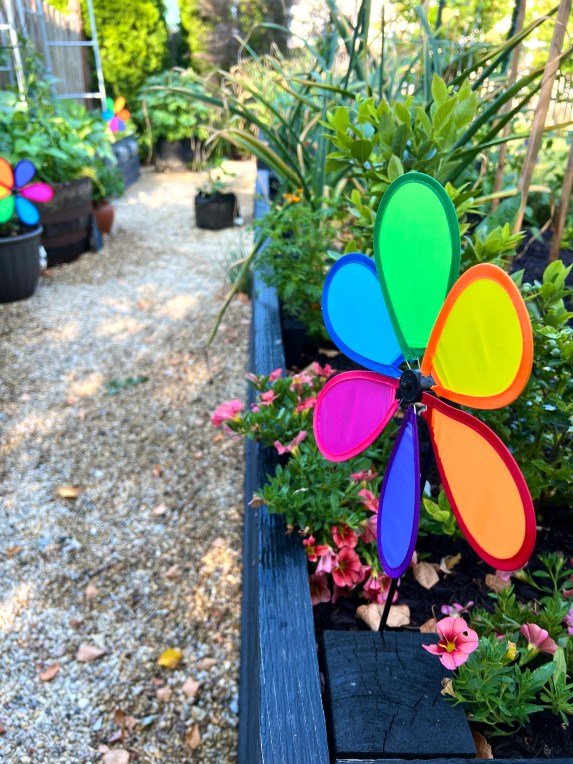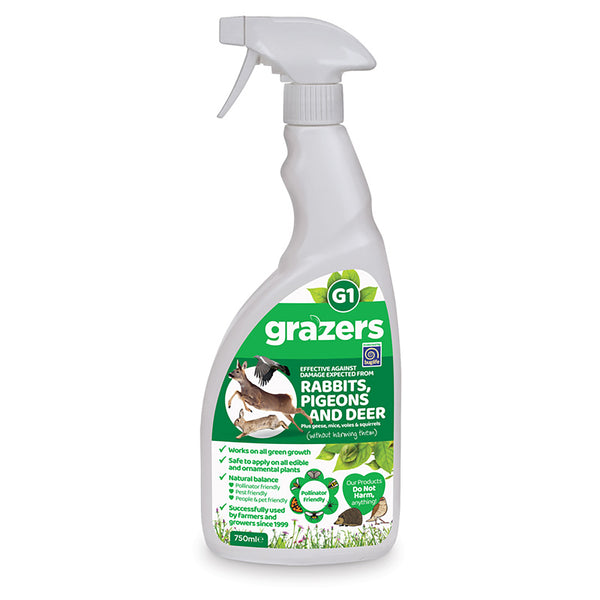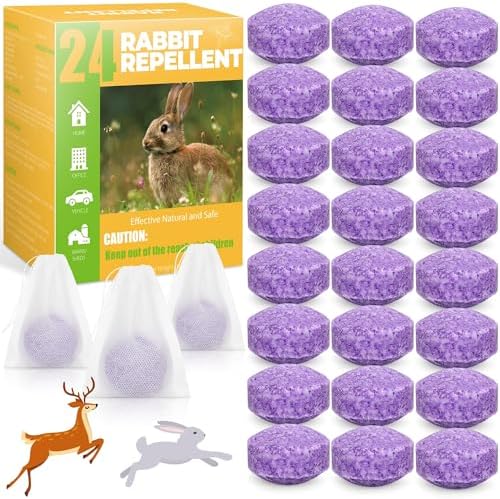Rabbits may be charming in the wild, but in your garden, they can quickly become a nuisance. These small plant-eaters love to munch on young seedlings, vegetables, and flowers, often causing holes, stunted growth, and plenty of frustration for gardeners. While fencing is a common solution, not everyone has the space, budget, or desire for physical barriers. Luckily, there are several effective ways to keep rabbits at bay without erecting fences. This guide highlights five natural and practical strategies to protect your plants while still supporting a rabbit-friendly environment nearby.
- Grow Plants That Rabbits Avoid
Why This Works
Certain plants repel rabbits because of their strong scents, tough leaves, or bitter tastes. Planting these species strategically around your garden can form a natural shield that discourages rabbits from venturing in.
Recommended Rabbit-Repelling Plants
- Lavender: Its potent aroma keeps rabbits away and attracts helpful pollinators.
- Marigolds: Their sharp scent acts as a natural deterrent.
- Alliums (garlic, onions, chives): Their intense flavors and smells repel rabbits.
- Daffodils and fritillaries: These are toxic and unappealing to rabbits.
- Sage and rosemary: Aromatic herbs that rabbits tend to avoid.
How to Use
Place these plants around vegetable patches and flower beds. Intermix them with vulnerable crops for extra protection. Consider using pots with herbs like garlic or chives near young plants for an added layer of defense.
Tip: Besides keeping rabbits away, many of these plants attract beneficial insects and enhance your garden’s beauty.
- Apply Natural Repellents
Why This Works
Rabbits depend heavily on their sense of smell and taste. Spraying natural repellents on plants or garden areas creates an unpleasant experience that discourages feeding.
Effective Natural Repellents
- Garlic or hot pepper spray: Blend garlic cloves or hot peppers with water, strain, and spray on susceptible plants.
- Blood meal or bone meal: Sprinkle around plants to deter rabbits while also fertilizing the soil.
- Commercial organic repellents: These often contain predator scents or strong herbs and are available at garden centers.
- Soap bars or hair clippings: Hanging soap or scattering hair near plants can confuse and repel rabbits.
How to Use
Spray or sprinkle repellents around the garden perimeter and directly on plants. Reapply after rain or watering to maintain effectiveness. Combining different repellents can create a stronger defense.
Tip: Rotate the repellents regularly to prevent rabbits from getting used to a single scent.
- Promote Natural Predators
Why This Works
Rabbits are naturally wary and tend to avoid areas where predators are active. Encouraging the presence of natural predators can create an environment that discourages rabbits from frequenting your garden.
Natural Predators That Help

- Raptors like hawks and owls play a vital role in controlling rabbit populations.
- Domestic pets such as cats and well-trained dogs can assist when supervised.
- In rural settings, snakes and foxes also contribute to keeping rabbits in check.
How to Encourage These Predators

- Set up perches or nesting spots to attract hawks and owls.
- Allow your calm, obedient dog or cat to roam the garden occasionally.
- Steer clear of poisons or traps to protect other wildlife.
- Pro tip: Fostering a balanced ecosystem promotes natural rabbit control without damaging the environment.
Effective Physical Barriers

Why They Work:
Even without fencing, simple barriers can effectively block rabbits from reaching tender seedlings and crops.
Practical Solutions:
- Use garden cloches or plant covers to shield young plants.
- Drape lightweight row covers over beds to keep rabbits out while letting sunlight and water through.
- Spread rough-textured mulches like pinecones, crushed stones, or coarse bark to deter rabbits from crossing.
- Install motion-activated sprinklers or lights to startle and discourage rabbits.
Implementation Tips:
- Protect plants during their most vulnerable early growth stages.
- Combine physical barriers with repellents for stronger defense.
- Regularly check covers to ensure plants receive adequate light and moisture.
- Rotate deterrents and change their placement periodically to keep rabbits guessing.
Creating a Rabbit-Resistant Garden

Why It’s Effective:
Rabbits prefer gardens with dense cover and easy food sources. Making your garden less inviting helps keep them away.
Practical Advice:
- Trim back shrubs and groundcover to eliminate hiding spots.
- Maintain short grass, as tall grass offers rabbits shelter.
- Remove fallen fruit and vegetables promptly to avoid attracting pests.
- Use raised beds to make seedlings less accessible.
How to Maintain:
- Regularly inspect your garden for new hiding places or debris.
- Combine habitat management with companion planting and natural repellents.
- Rotate crops and bed locations to reduce predictability for pests.
- Keep your garden tidy and well-maintained to discourage rabbits and simplify management.
Additional Sustainable Rabbit Control Tips
- Combine multiple methods—repellents, companion plants, and physical deterrents—for best results.
- Monitor your garden often for signs of rabbits, like droppings or nibble marks.
- Plant sacrificial crops such as lettuce or clover away from your main garden to divert rabbits.
- Avoid feeding wildlife near your garden to prevent attracting unwanted visitors.
- Stay consistent with maintenance and reapplication of deterrents to ensure lasting protection.
Final Thought
Rabbits may be charming, but without proper control, they can cause significant damage to your garden.
Although fencing remains a classic method, there are plenty of natural and effective alternatives to keep rabbits at bay. The top five proven techniques include:
- Growing plants that rabbits tend to avoid, such as garlic, marigolds, and lavender.
- Applying natural deterrents like garlic sprays or blood meal treatments.
- Attracting and supporting natural predators to foster a cautious atmosphere for rabbits.
- Using physical barriers such as row covers, cloches, or coarse mulch to block access.
- Designing a garden that discourages rabbits by minimizing hiding places and carefully managing plant growth.
By integrating these approaches, gardeners can safeguard their vegetables, flowers, and shrubs without relying on harsh chemicals or unattractive fencing. A thoughtfully crafted, rabbit-resistant garden promotes robust plant health, bountiful yields, and a balanced ecosystem—all while gently keeping these adorable creatures at a respectful distance.
Rabbits in Gardens: Challenges and Solutions
- Rabbits damage seedlings, vegetables, and flowers, causing holes and stunted growth.
- Fencing is common but not always feasible or desirable.
- Five natural, practical methods can deter rabbits while supporting a rabbit-friendly ecosystem.
1. Plant Rabbit-Repellent Vegetation
- Rabbits avoid plants with strong scents, tough textures, or bitter flavors.
- Recommended plants: lavender, marigolds, alliums (garlic, onions, chives), daffodils, fritillaries, sage, rosemary.
- Plant around vulnerable crops and use containers near seedlings.
- Benefits include deterring rabbits and attracting beneficial insects.
2. Use Natural Repellents
- Rabbits rely on smell and taste; repellents create unpleasant sensory experiences.
- Effective repellents: garlic or hot pepper spray, blood meal, bone meal, commercial organic repellents, soap, hair clippings.
- Apply around plants and reapply after rain; rotate repellents to prevent habituation.
3. Encourage Natural Predators
- Predators like hawks, owls, cats, dogs, snakes, and foxes discourage rabbits.
- Install perches or nesting boxes; allow supervised pets to patrol.
- Avoid poisons or traps to protect other wildlife.
4. Create Physical Deterrents
- Use garden cloches, row covers, rough mulch, and motion-activated devices.
- Protect seedlings especially during early growth stages.
- Combine with repellents and rotate deterrents to maintain effectiveness.
5. Maintain a Rabbit-Unfriendly Environment
- Remove dense cover by trimming shrubs and groundcover.
- Keep grass short and clean up fallen fruit and vegetables.
- Use raised beds to make plants less accessible.
- Regularly inspect and manage garden habitat.
Additional Tips for Sustainable Control
- Combine multiple methods for best results.
- Monitor for rabbit activity regularly.
- Plant sacrificial crops to distract rabbits.
- Avoid feeding wildlife near the garden.
- Maintain consistency in deterrent application.
Conclusion
- Rabbits can harm gardens but can be deterred naturally without fencing.
- Key strategies: repellent plants, natural repellents, predators, physical barriers, and habitat management.
- Combining these methods protects plants and supports a sustainable ecosystem while keeping rabbits at bay.
